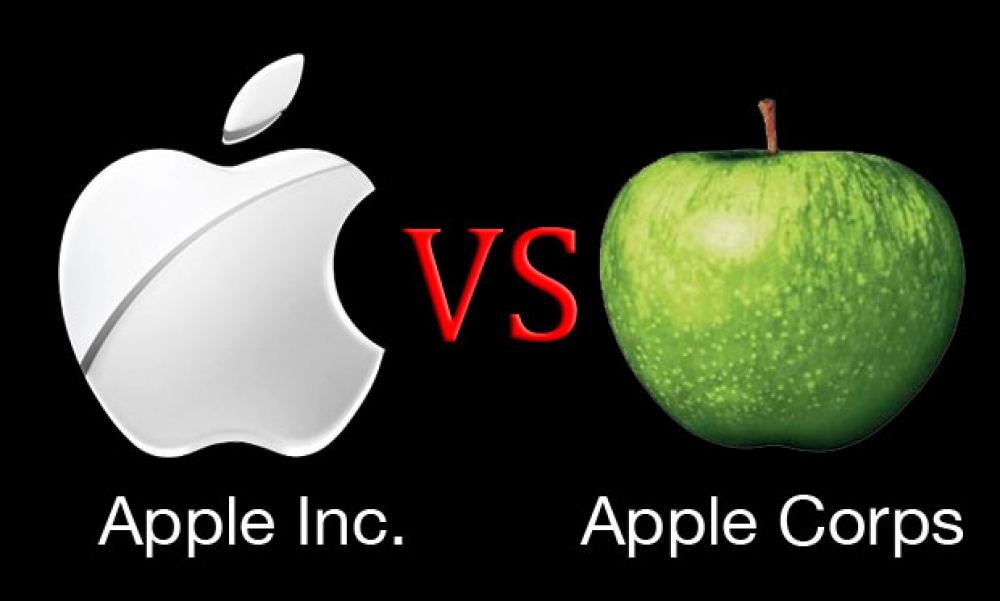“An apple a day……†is a well-known phrase, the phrase we didn’t know is that too many apples in one industry could cause one heck of a problem and probably millions of dollars. The lawsuit which started for Trademark went on for 30 years and ended once the company was acquired by another and also involved some bigger names both in entertainment and technology namely The Beatles and Steve Jobs.
This story takes us straight back to 1977 when George Harrison “The Quiet Beatle†first heard of Apple Computers just after a few days when it was created. He alerted the staffs at Apple Corps, the company “The Fab Four†created in 1968 as a studio that also served as a record label. This could probably be the last division that survived after the split of The Beatles.
In 1978 Apple Corps sued Apple Computers for violating its trademark. The suit continued till late 1981 and both sides lost hundreds of thousands of dollars and finally came to an agreement that both sides will function separately in their specific/separate fields Corps->Music and Computers->Computer. And along with that Apple Computers also paid a sum of $80,000 to Apple Corps for the rights to keep the Apple name.

But that wouldn’t be the last time the two brands collide. As the ’80s continued, computers became more complicated increasing the range of tasks a machine could achieve. Multiple products in Apple’s Macintosh line were engineered for music creation, playback, something the folks at Apple Corps thought violated the 1981 agreement. Not long after Apple Computer announced the Musical Instrument Digital Interface (MIDI), which allowed computers to interact with musical instruments, Apple Corps couldn’t tolerate that and you guessed it right, The Beatles sued Apple Computers again.
Apple Computer agreed that they would not use or register their marks for any equipment which had been adapted for use in the recording or reproduction of music. Beatles attorney Nicholas told the Times after the trial had dragged for many months “if they made a computer that could do anything with music, they couldn’t call it an Apple anymore. They’d have to rename it to an Orange.â€
.jpg)
The legislation halted the production of products in Apple Computers, people in Apple Computers feared, because a loss in this lawsuit will stop the production and the release of another machine capable of doing anything music-related “FOREVERâ€. Finally, they landed somewhere in the middle, and Apple Computers agreed to pay $27.3 million along with legal costs. And Apple Corps will hold the rights to creative works whose principal content is music, and Apple Computer was now allowed to build and market products that could reproduce, run, play or otherwise deliver music. Finally, the Corps agreed that Computer could play music. But the Apple Computers was not allowed for using its trademark with physical media delivering pre-recorded content such as CDs of SGT. Peppers Lonely Hearts Club Band album and etc. Well, overall The Beatles didn’t want to be part of the computer business and wanted to stay away from apple for once and for all.
But time won’t let you be free, 12years later Apple Computers introduced the iTunes store which allowed users to download songs for cent’s and also allowed Apple Corps to sue Apple Computers for violating the agreement.
And as usual, it took quite a while for the lawsuit to work itself out. In fact, Apple computers officially ended the lawsuit in the mid of 2006, with a settlement that included Apple Computer purchasing Apple Corps trademarks and licensing them, the lawsuit unofficially ended on October 2006, they finally squared away ownership of the logo. Steve Jobs also told the Times that, We love The Beatles, and it’s been really rough going face to face with our most favourite band over these stupid trademark issue. And now it feels great that we’ve resolved the issue in good terms, and in a way that will remove any arguments between us in the future. Apple won the war, but Apple Corps won the battle

The Love They Took, In The End, Is Equal To The Love They Made.


Comment